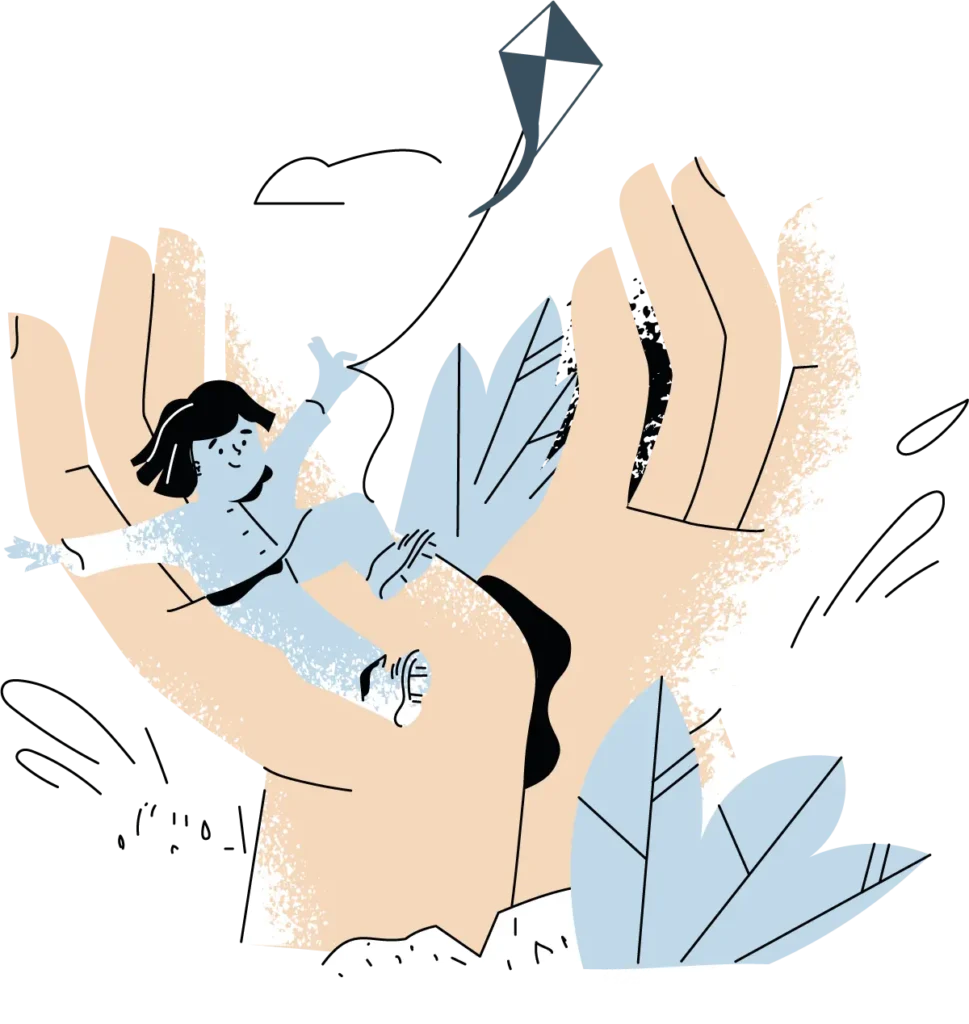What are Adaptive Skills in Childhood?
Adaptive skills in childhood are a set of skills that are needed for daily life.
Adaptive skills impact maturity. They impact how a child acts within the home and community regarding independence, taking personal responsibility, and making age-appropriate choices.
These daily living tasks are required for children to mature into adulthood and be independent members of society.
Sometimes adaptive skills are called ‘Activities of Daily Living’ or ADL’s. Examples include bathing, getting dressed, cleaning up, toilet training, and maintaining basic hygiene. In older teens and adults, adaptive skills include navigating around town, keeping appointments, and showing up for work or school at the scheduled time.
Some children do not seem to mature as quickly as other children do. They seem to need more help, guidance, and hand-holding to complete their day-to-day tasks. Sometimes, children with adaptive skills issues have special needs. These special needs include ASD, an intellectual disability, or developmental disabilities. Sometimes, very bright children have adaptive skills that do not match the child’s ability.
You may see these adaptive skills need in your very bright child who is reading two grade levels ahead. You might not have any concerns about your child’s learning. But, you wonder if they will ever make it to school on time, bathe, or choose proper clothing for the weather without your help.
You may be the parent of an 8-year-old, but already you are wondering, “How will this child ever make it in college?” Sometimes children with ADHD or an autism spectrum disorder (ASD) may have very high intelligence and very low adaptive skills.
It is also important to note that children mature at different rates. People often say that girls mature faster than boys. In very young children (up to age 2 or 3), we need to adjust our expectations for premature babies by considering gestational age at birth.
Symptoms of Adaptive Skill Issues in Children
- Acts immature: Not acting as mature as peers of the same age. Maybe you are constantly apologizing for behavior at the grocery store, library, or playground
- Delayed developmental milestones: Talking, walking, dressing and bathing are skills that your pediatrician asks about at well-child visits
- Cannot follow the morning routine: Struggling to manage getting dressed, eating, and brushing teeth without lots of help
- Leaves clothes, toys, and belongings everywhere: Feeling like a tornado hit the living room after your child comes through
- Needs help to bathe: Still needing help in the shower beyond what you would expect for their age
- Resists hygiene and wears the same clothes: Going to school with dirty, uncombed hair, unbrushed teeth, and the same clothes as yesterday if you don’t step in to assist
- Cannot manage daily skills: Trouble telling time, reading a calendar, or counting money; needs lots of support for daily tasks
- Does not do chores: Not putting clothes away, taking out the trash, or cleaning their room
Causes of Adaptive Skill Issues in Children
- Immaturity: Children who are not maturing as fast as their peers will be more reliant on adult support and guidance than other children. There is some variation by age, and genetics and environment can matter too
- Lack of opportunity or responsibility given: Some children may not live in a safe setting to permit independence. Some families may shelter and do things for their children so often that they have trouble developing independence. Without a chance to try to get dressed, brush their teeth, and feed themselves, children will be slower to develop these skills
- Developmental delays: Children identified as having developmental delays are likely to have adaptive skill deficits as a part of this delay. Taking advantage of early intervention services when these are available is recommended
- Cognitive impairment: Often, children with cognitive delays or impairment (intellectual disability) have equal delays in these behaviors and skills
- Attention deficit hyperactivity disorder: It is common for children with ADHD to have adaptive skills that are lower than cognitive abilities. Hyperactivity, impulsivity, and inattention have an impact on developing adaptive skills
- Autism spectrum disorder: Also, children with autism tend to have adaptive skills that are lower than their cognitive abilities. Children may rely more on their parents or seem less mature than same-aged peers. They are struggling with social interaction and social communication
- Depression or mood challenges: Parents may tend to see a drop in adaptive skills when a child or teenager is depressed or having mood challenges. The child may have decreased hygiene, maturity, and independence when dealing with an emotional burden
- Motor coordination challenges: Children with motor challenges like Developmental Coordination Disorder or Cerebral Palsy may have motor difficulties that impact their ability to carry out tasks independently
What to Do About Adaptive Skill Issues in Children
- DO: Break skills down into simple steps, and support these developing skills for your child. Adapt tasks so your child can learn them one step at a time.
- DO: Work with them to clean up toys in the bedroom or to rake the yard.
- DO: Create a morning routine poster to hang in the bedroom and bathroom that reminds your child of the steps to complete the routine.
- DO: Make a chore chart with stickers exchanged for family game night, ice cream, or a trip to the park. Keep things simple, and make rewards meaningful.
- DON’T: Threaten things you cannot or will not enforce, such as, “No TV for a week if this room isn’t clean.” If everyone else watches TV, this consequence may not be possible.
- DO: Say, “First, put all your dirty clothes in the hamper, then you can play outside.” This reward is immediate and straightforward, and the chore is clearly stated.
When to Seek Help for Adaptive Skill Issues in Children
Some children struggle with adaptive skills even with all these lovely strategies. This struggle means it is time to be in touch with the school team and consult a therapist. Consider having your child evaluated to better understand their unique strengths and weaknesses that may contribute to adaptive deficits.
Further Resources on Adaptive Skills in Children
- Applied behavior analyst (ABA therapist): to treat behavior; can help a child increase adaptive skills and improve communication. In-home treatment plans make addressing self-care and domestic skills easier
- Psychologist or neuropsychologist: to consider a full assessment, to examine possible symptoms in mental health and behavioral contexts, and to better understand causes and treatment
- Psychotherapist or play therapist: to treat emotional symptoms as needed; to work on social skills via a social skills group or psychotherapy interventions and plans at home like chore charts, toke jars, visual schedules, etc.
- Occupational therapist or speech pathologist: to treat fine motor skills, gross motor skills, or language development. In combination with ABA, this approach may be the most effective way to help build skills around self-care, chores and routines and functional communication
- School team: to work with your child on adaptive skills. Your school psychologist, school occupational therapist, and school speech pathologist may be helpful here. Teachers can help support skills, particularly in consultation with the OT. As a student, your child can practice routines and daily tasks. Sometimes, the school will administer the Vineland ABS, a teacher scale to see how your child is doing with adaptive skills at school.
Similar Conditions to Adaptive Skills Issues
- Socializing: difficulty socially interacting with others impacts adaptive skills because children learn as they interact with one another, share toys and make friends. Vygotsky’s social learning theory posits that social interaction underlies typical learning and development. Social Skills impact adaptive behavior
- Communicating: trouble with communication impacts a child’s ability to express their wants and needs, to develop conversation skills, and to engage reciprocally with peers
- Intelligence: trouble with thinking and reasoning can cause general delays that would encompass areas like communication, daily living skills, socialization, and motor development
- Motor planning or handwriting: motor impairments are a component of adaptive skills. Being able to move about, grasp items, turn the pages of a book and later draw and write are important skills that facilitate learning
References on Adaptive Skills in Children
Giler, Janet Z. (2011). Socially ADDept: Teaching social skills to children with ADHD, LD, and Asperger’s.
Kroncke, Willard, & Huckabee (2016). Assessment of autism spectrum disorder: Critical issues in clinical forensic and school settings. Springer, San Francisco.
Books for Kids
Cook, Julia (2012). Personal space camp.
Esham, Barbara (2015). Mrs. Gorski, I think I have the wiggle fidgets. (New edition) (Adventures of everyday geniuses.)
Smith, Bryan & Griffen, Lisa M. (2016). What were you thinking? Learning to control your impulses (Executive function).
Gordon, Jon (2012). The energy bus for kids: A story about staying positive and overcoming challenges.
Cook, Julia (2013). Thanks for the feedback, I think (Best me I can be!)
McCumbee, S. (2014) The garden in my mind: Growing through positive choices.
McCumbee, S. (2014). The garden in my mind activity book.


